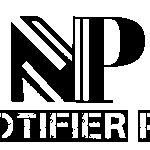In a shocking incident, the Islamabad Food Authority (IFA) carried out a major raid in Tarnol, where they seized over 25 maunds (approximately 900 kilograms) of donkey meat. The illegal operation also involved more than 50 live donkeys, which were found at the site during the raid. Officials believe the meat was being prepared for export to other countries.
During the raid, a foreign national was present at the facility and has now been handed over to the local police for further investigation. Authorities suspect a wider criminal network may be behind this illegal meat trade. A formal case has been registered, and investigations are underway to find out who was buying the meat and where it was being sent.
The Islamabad Food Authority acted swiftly to prevent this meat from entering the local food market. The recovered donkey meat is being safely destroyed to protect public health. Officials have confirmed that none of the meat will reach stores or be consumed by the public.
The IFA emphasized that food safety is a top priority and that strong action will continue against those involved in unhygienic or illegal practices. The public is being urged to buy meat only from licensed and verified shops, and to report any suspicious activity related to food.
This operation is part of a larger government campaign to ensure safe and healthy food for the public. Authorities warned that more raids and inspections will be carried out in the coming days, and anyone involved in illegal food practices will be held accountable under the law.
The arrest of the foreign national adds an international angle to the case, raising questions about cross-border connections and illegal food exports. Investigators are now working to uncover the full extent of this criminal operation, including supply chains, buyers, and international contacts.
This raid serves as a clear message to those involved in food crimes: such activities will not be tolerated, and strict legal action will follow. The Islamabad Food Authority continues to work hard to protect citizens from unsafe and unethical food practices.





